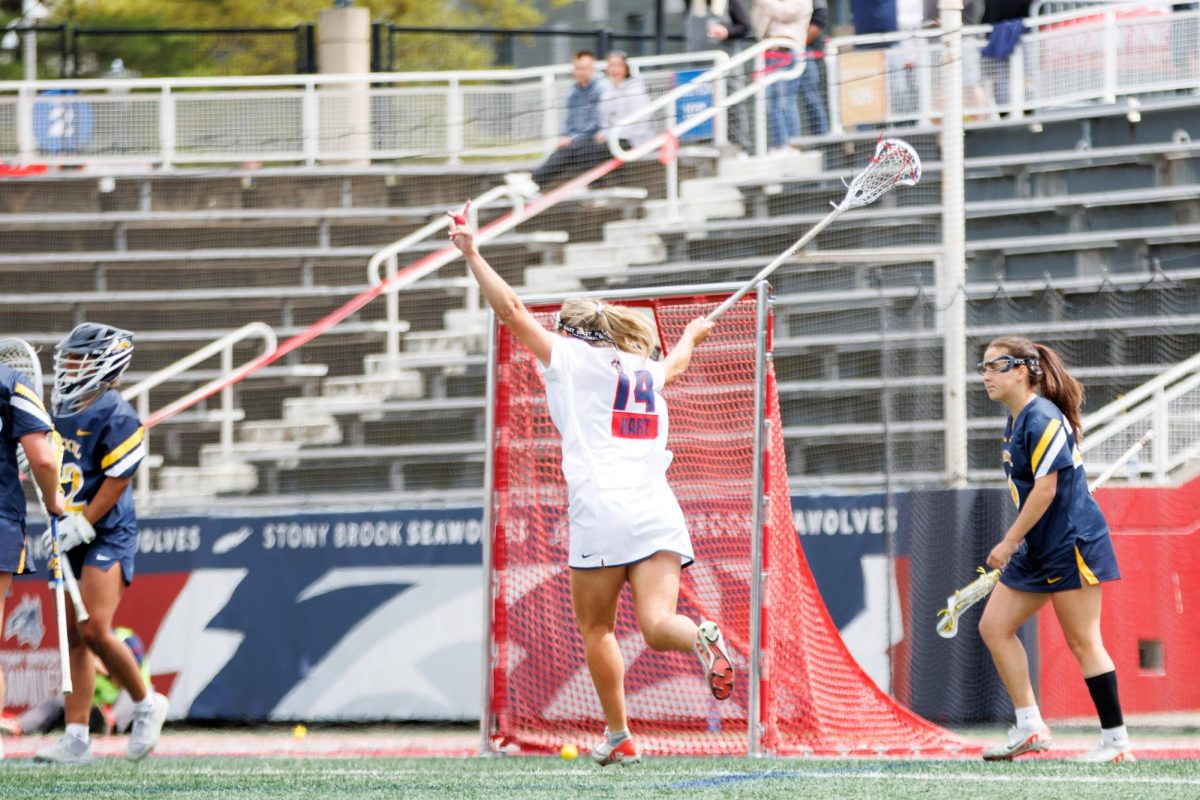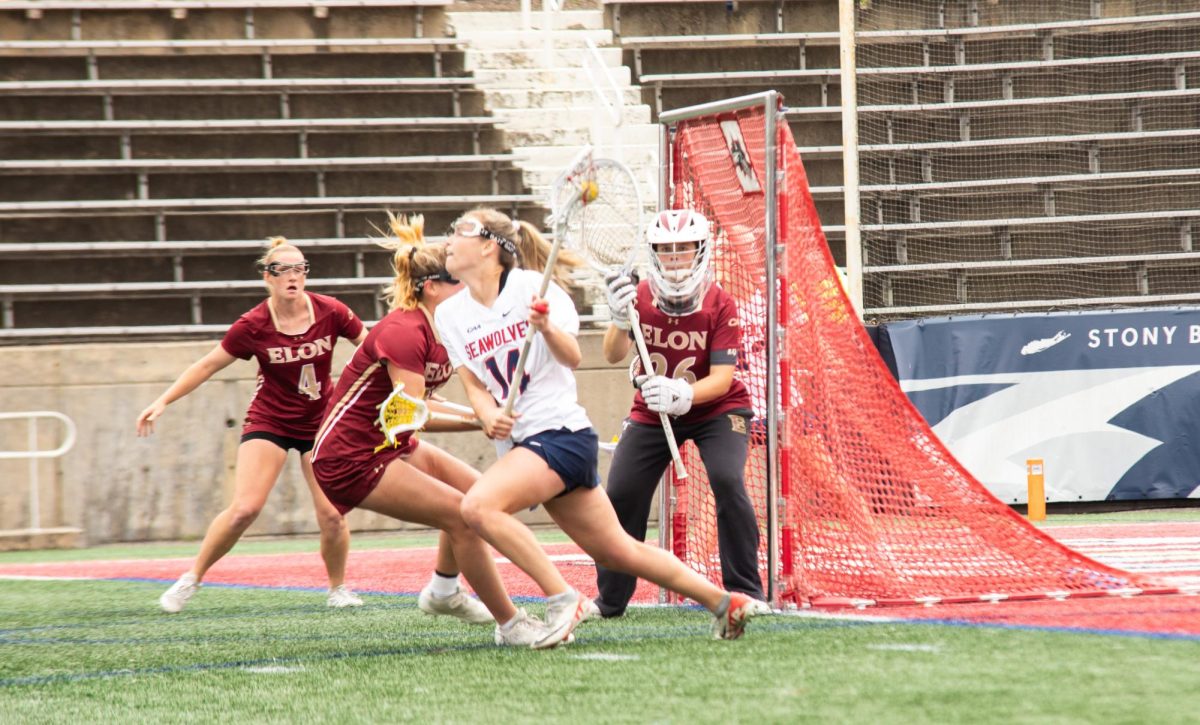
They came from all over. Louisiana, Montreal, Kentucky, Texas and Stony Brook, New York— just to name a few. With their faces painted and their brooms in hand, they were all in search of the same thing: to be the champions of the 2010 Quidditch World Cup.
The scene from Dewitt Clinton Park in New York City this past weekend was like something straight out of J.K. Rowling’s imagination; even the most skeptical passersby might believe they had broken through the muggle repellent charms cast by the Ministry of Magic. Children in crimson and gold scarves pleaded with their parents for a new hand carved wand while grown men and women in flowing robes and pointed hats watched intently from the side lines as the players on the pitch struggled to dodge the beaters, gain control of the quaffle and capture the golden snitch.
But the teams playing were not the Chudley Cannons, the Holly Harpies, or any other team an avid fan of the Harry Potter series might expect to see participating in the popular wizarding sport. In fact, they weren’t wizards at all, but college students sporting t-shirts with quirky anecdotes like, “Because Hogwarts Didn’t Accept FAFSA,” and running with brooms between their legs as their legs as they tried to throw a soccer ball through a hula hoop.
Quidditch has officially infiltrated non-magical college campuses everywhere as 46 teams and more than 750 registered players came together on Saturday to compete for a place in the top 24 seats for a chance at the finals the following day.
The rules are true to those of the books, with inevitable modifications that come with a lack of magic. There are three hoops on each end of the pitch that act as the goals. Each has seven players with three offensive players known as chasers, two beaters who pelt the other players with bludgers, which are dodge balls, a keeper who acts as the goalie and a seeker who has the job of chasing the snitch runner. The snitch runner is usually a cross country runner dressed head-to-toe in yellow, and will use any tactic necessary to protect snitch, which is a flag hanging from their back pocket, from the seeker. Once the seeker captures the flag, their team receives 30 points and ends the game.
The game is also as violent as the one depicted by Rowling, and without Madam Pomfrey available to mend bones in mere moments, it became a common sight to see players wheeled off the field on stretchers and taken to the medic’s tent throughout the day.
“It’s a really physical game, it’s fast paced and it’s really intense,” said Luke Allen, Stony Brook University sophmore and starting bludger for the team, after a close match with the University of Charleston South Carolina, which ended in a loss during overtime. “We were just happy to play a fair game, some of the teams out there play dirty.”
The team, which consisted of 19 players, wasn’t overly concerned with winning as it was most of the members’ first tournament.

“Our goal is really to win the Manshel award,” co-captain Anthony Zuttler said, referring to a $1,000 prize sportsmanship award named after the Inter Quidditch Association’s, or IQA’s, first commissioner, Xander Manshel. “We want people to see that Stony Brook is really just a good bunch of kids.”
The team, which was founded and recognized by the IQA just two months ago, is new to the World Cup but far from alone. According to Ivana Roman, the director of public relations for the IQA, the change in venue from Middlebury College in Vermont where the non-magical adaptation of the sport was founded to New York City brought 26 more teams than last year to the tournament.
“We were super surprised to see people coming from across the country to be here,” said Roman, a sophomore at CUNY Hunter.
Despite their first loss, the Stony Brook Bolts remained focused for their next match against a team from Transylvania, Kentucky as they studied the competition and discussed strategy.
“We need to come out fast and try to keep control of the ball,” co-captain and team founder Daniel Ahmadizadeh said to his teammates as he pointed to the players on the pitch. “Look at their quick substitutions.”
The energy in the park only increased by the time the Bolts took to the pitch again, as one referee gathered a meeting of the snitch runners. Off in the distance, the rally cries of the Johns Hopkins University team could be heard.
[issuu layout=http%3A%2F%2Fskin.issuu.com%2Fv%2Flight%2Flayout.xml showflipbtn=true pagenumber=8 documentid=101115231555-ea0f3ad11152459eb5b485d7d34e8d7f docname=stonybrookstatesman5412 username=sbstatesman loadinginfotext=Statesman%3A%20Volume%2054%2C%20Issue%2012 showhtmllink=true tag=usg width=600 height=409 unit=px]
The team was optimistic about its match up with its opponents, but the news of who would act as the snitch was a surprise. Rainey Johnson, a Middlebury College graduate notorious for his antics on the pitch was selected to participate in the game.
“He bit me once,” Ben Cohen, the McGill University Quidditch coach, said with a laugh as he pointed at Johnson.
The match began with Stony Brook taking an early lead as Ahmadizadeh scored the first goal and the team pulled ahead, scoring six goals before Transylvania even made its first.
Even with Johnson’s tendency for front flips and mid-game marriage proposals to Stony Brook’s seeker, Andrew O’Rourke, O’Rourke was able to grab the snitch and end the game for the teams first victory in the tournament.
“It felt really good,” said O’Rourke, a junior, as his team celebrated the 120-30 win. “I’m not the best runner, but I just went out there and did my best.”
The team’s luck ended there as it retook the pitch for its third match of the tournament against Chestnut Hill College. Chestnut Hill gained an early lead with speed so astounding that one might imagine the players were actually flying. Stony Brook was only able to regain one goal before a sudden capturing of the snitch by the Chestnut Hill seeker.
It may have been a loss, but it wasn’t a defeat. Onlookers from other teams applauded the Stony Brook players as they walked off the field. They were eliminated from the tournament, but they were met with cheers and slaps on the back: recognition of a job well done for the newcomers to the tournament.
“We just played the most intense game of the tournament,” Ahmadizadeh told his teammates as they huddled.
Stony Brook University students and alumni were thrilled to see their school represented at the World Cup. Rachel Parker, a former graduate student from Stony Brook University, proudly wore a Seawolves t-shirt and watched the game.

“We came out for Quidditch, but we heard that Stony Brook was playing and we really just had to see them,” she said. “I think they did a great job!”
The World Cup ended on Sunday afternoon, with a battle for first place between Middlebury College and Tufts University. Middlebury came to overtake Tufts with a score of 100-50, taking the title of World Cup champions for the fourth year in a row.
“I think we’d all like to win this tournament, but the point of this game is really just to have fun,” Middlebury’s seeker Ryan Scura said as he warmed up during an interview on the previous day. “It’s really hard to not see the goofy appeal in all of this but that’s what we love about it.”
















